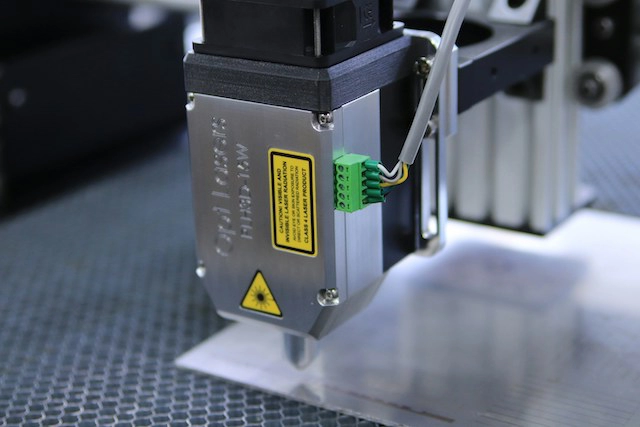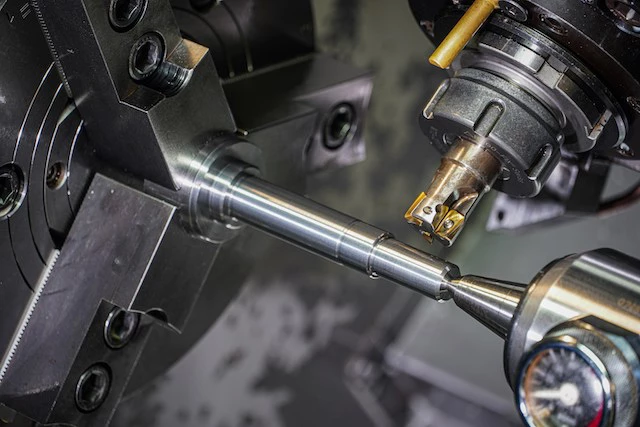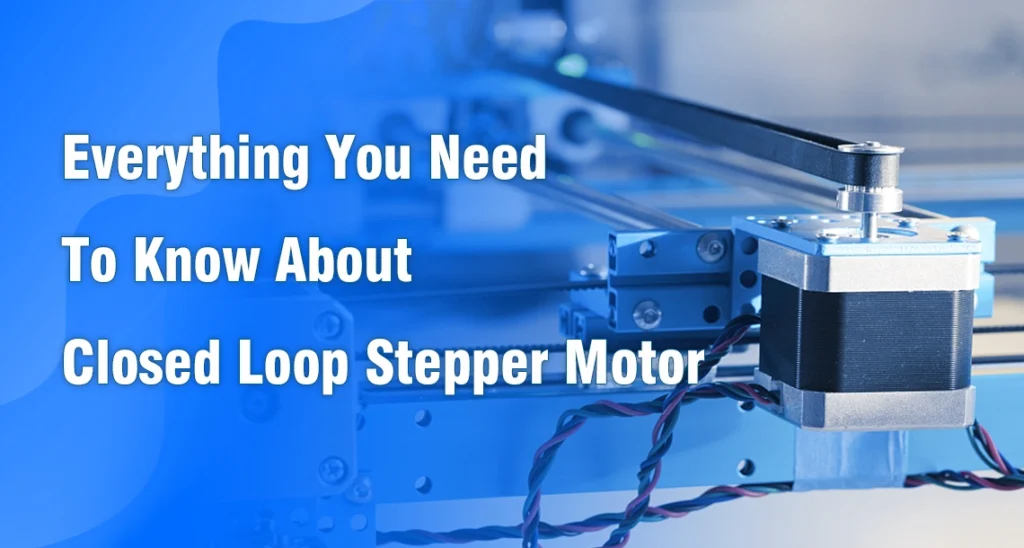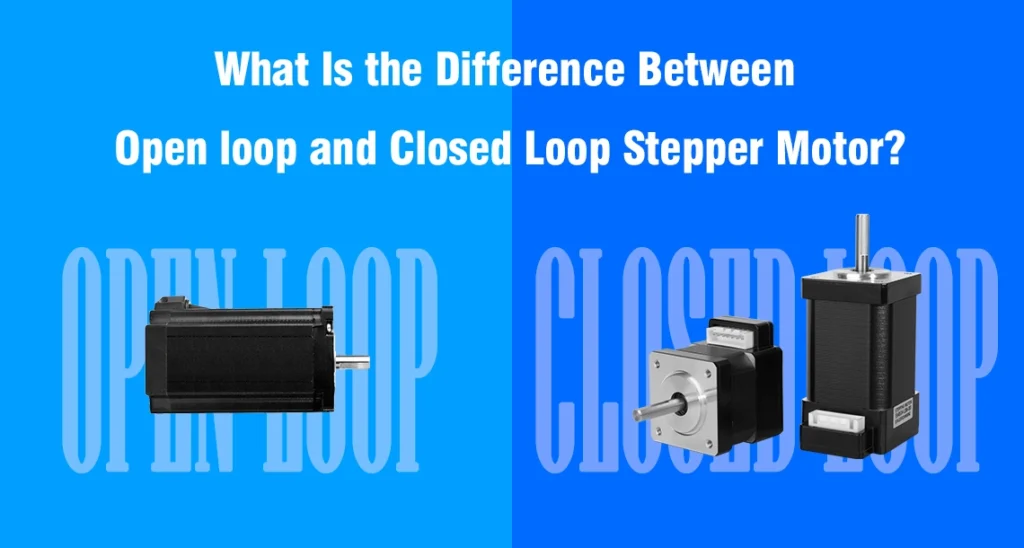In the dynamic world of CNC machining, precision, and reliability are paramount. As technology evolves, the demand for enhanced performance and accuracy in CNC systems continues to grow. One significant advancement that has revolutionized the CNC landscape is the integration of closed loop stepper motors.
In this blog post, MXELECTRON will delve into the applications of closed-loop stepper motors in CNC machines and explore how their integration addresses critical challenges in the CNC system.
Understanding Closed Loop Stepper Motors
Stepper motors have long been a staple in CNC systems, providing precise control over movement. However, traditional open-loop stepper motors cannot adjust for disturbances or errors during operation, leading to potential issues such as missed steps and reduced accuracy. On the other hand, closed-loop stepper motors incorporate a feedback mechanism, typically encoders, to constantly monitor the motor’s position.
Applications in CNC Machines
- Enhanced Precision:
Closed-loop stepper motors excel in applications that require high precision. The feedback loop monitors the motor’s actual position and adjusts the movement accordingly, ensuring that the CNC machine follows the programmed path.
- Improved Torque at High Speeds:
One common challenge in CNC machining is maintaining torque at high speeds. Closed-loop stepper motors mitigate this issue by dynamically adjusting the current supplied to the motor based on real-time feedback, optimizing torque and performance even at elevated speeds.
- Eliminating Resonance Issues:
Resonance, often encountered in CNC systems, can lead to vibrations and reduced machining quality. Closed-loop stepper motors can detect resonance frequencies and make real-time adjustments to avoid these issues, resulting in smoother and more accurate machining.
- Error Detection and Correction:
Traditional open-loop stepper motors are prone to missed steps, especially in dynamic machining scenarios. Closed-loop systems can quickly detect such errors and make instantaneous corrections, ensuring the CNC machine maintains accuracy throughout the operation.

Addressing CNC System Challenges:
- Minimizing Heat Generation:
Closed-loop stepper motors are designed to operate efficiently, minimizing heat generation. This is crucial in CNC systems where excess heat can degrade performance and affect the lifespan of components.
- Adaptability to Load Variations:
CNC machines often encounter varying loads during operation. Integrated closed-loop stepper motors can adjust their performance in real-time, accommodating changes in load and maintaining optimal efficiency.
- Reducing Energy Consumption:
The ability to adjust current based on actual motor requirements contributes to energy efficiency. Closed-loop systems optimize power usage, reducing energy consumption and making CNC systems more environmentally friendly.
- Facilitating Smoother Operation:
The closed-loop nature of these stepper motors ensures smoother operation throughout the machining process. Sudden changes in direction or resistance from the material being worked on can cause disruptions in traditional open-loop systems. Closed-loop motors, however, detect and correct deviations promptly, leading to a more seamless and uninterrupted workflow.
- Enhanced Tool Life:
Tool wear is a constant concern in machining operations, impacting both quality and operational costs. Integrated closed-loop stepper motors play a role in extending tool life by maintaining consistent cutting forces. The ability to adapt to changing loads ensures that tools operate within their designed parameters, reducing wear and extending the lifespan of cutting tools.
- Compatibility with Advanced Control Systems:
Closed-loop stepper motors seamlessly integrate with advanced control systems, providing a platform for implementing sophisticated algorithms and predictive maintenance strategies. This compatibility empowers CNC operators with tools to monitor and optimize the entire machining process, leading to increased efficiency and long-term cost savings.
How to Select the Right Closed Loop Stepper Motor for Your CNC Machine?
Torque Requirements:
Determine the torque requirements of your CNC application. Consider factors such as the type of material you’ll be machining, the tool size, and any additional loads. Select a closed loop stepper motor that provides sufficient torque for your specific needs.
Speed and Acceleration:
Evaluate the required speed and acceleration for your CNC machine. Closed loop stepper motors offer advantages in maintaining torque at higher speeds. Choose a motor with specifications that align with the speed and acceleration demands of your application.
Resolution and Microstepping:
Assess the resolution needed for your CNC machine. Closed loop stepper motors typically have higher resolutions due to the feedback system. Additionally, consider the microstepping capability, which influences the motor’s ability to provide smoother motion. Higher microstepping can contribute to finer resolution and reduced vibration.
Feedback System:
Examine the feedback system integrated into the closed loop stepper motor. Encoders are commonly used for feedback. A higher resolution encoder provides more accurate position feedback, contributing to improved precision in your CNC machining operations.
Integration with CNC Controller:
Ensure compatibility between the closed loop stepper motor and your CNC controller. Check if the motor supports the communication protocol used by your CNC system. A seamless integration ensures optimal performance and ease of operation.
Environmental Considerations:
Evaluate the operating environment of your CNC machine. Closed loop stepper motors should be selected based on factors such as temperature, humidity, and dust exposure. Choose a motor that can withstand the environmental conditions of your machining setup.
Cost Considerations:
While closed loop stepper motors offer enhanced performance, consider your budget constraints. Compare the cost of different motor options and weigh it against the benefits they provide. It’s essential to strike a balance between performance and cost-effectiveness.
Energy Efficiency:
Consider the energy efficiency of the closed loop stepper motor. Motors that can dynamically adjust current based on load requirements contribute to energy savings. This is particularly important for long-duration CNC machining operations.
Reliability and Maintenance:
Assess the reliability and ease of maintenance of the closed loop stepper motor. Choose a motor from reputable manufacturers known for producing reliable and durable products. Additionally, consider the ease of troubleshooting and maintenance procedures.
Future Expansion and Upgrades:
Anticipate future needs and potential upgrades in your CNC system. Select a closed loop stepper motor that allows for scalability and can accommodate any enhancements or changes in your machining requirements.
Conclusion:
Integrating closed-loop stepper motors into CNC systems represents a significant leap forward in achieving higher precision, improved performance, and enhanced reliability.
These advanced motors address common challenges faced by CNC machines, making them an ideal choice for industries where precision is non-negotiable. As technology continues to evolve, integrating closed-loop systems is poised to become a standard in the CNC machining landscape, setting new benchmarks for efficiency and accuracy.

FAQs: Closed Loop Stepper Motors and CNC Machines
Q1. What is a closed loop stepper motor, and how does it differ from an open-loop stepper motor in a CNC machine?
A1: A closed loop stepper motor, unlike an open-loop stepper motor, incorporates a feedback mechanism (usually an encoder) to continuously monitor and adjust the motor’s position. This real-time feedback allows closed-loop systems to correct errors and improve overall performance, addressing issues like missed steps and enhancing precision in CNC machining.
Q2. What advantages do closed loop stepper motors offer in CNC applications?
A2: Closed loop stepper motors provide enhanced precision, improved torque at high speeds, error detection and correction, and the ability to adapt to load variations. These motors contribute to smoother motion, reduced resonance issues, and increased overall reliability in CNC machining operations.
Q3. How do I determine the appropriate torque rating for a closed loop stepper motor for my CNC machine?
A3: Assess the torque requirements based on the specific demands of your CNC application. Consider factors such as material type, tool size, and any additional loads. It’s crucial to choose a closed loop stepper motor that can deliver sufficient torque for the machining tasks at hand.
Q4. Can closed loop stepper motors maintain accuracy at high speeds in CNC machining?
A4: Yes, closed loop stepper motors excel at maintaining accuracy even at high speeds. The feedback system allows these motors to dynamically adjust the current supplied, ensuring consistent performance and precision throughout a range of speeds in CNC applications.
Q5. What role does the feedback system, such as an encoder, play in closed loop stepper motors?
A5: The feedback system, typically an encoder, constantly monitors the motor’s position and provides real-time data to the controller. This information enables the closed-loop system to make instantaneous adjustments, correct errors, and maintain accurate positioning, addressing the limitations of open-loop systems.
Q6. What are the key considerations when integrating closed loop stepper motors with a CNC controller?
A6: When integrating closed loop stepper motors with a CNC controller, it’s crucial to ensure compatibility in terms of communication protocols. Verify that the motor supports the communication standards used by your CNC system to facilitate seamless integration and optimal performance.
Q7. Are closed loop stepper motors more energy-efficient than open-loop counterparts in CNC applications?
A7: Yes, closed loop stepper motors are often more energy-efficient. Their ability to dynamically adjust the current based on load requirements contributes to energy savings during CNC machining operations, making them a sustainable and cost-effective choice.
Q8. Can closed-loop stepper motors be used in various CNC machining environments?
A8: Closed loop stepper motors are designed to operate in diverse CNC machining environments. However, it’s essential to consider factors such as temperature, humidity, and dust exposure to ensure the chosen motor can withstand the specific conditions of your CNC setup.
Q9. How do closed loop stepper motors contribute to the reliability and maintenance of CNC machines?
A9: Closed loop stepper motors are known for their reliability, as the feedback system allows for quick error detection and correction. Choosing motors from reputable manufacturers ensures durability and ease of maintenance. Troubleshooting is facilitated by the real-time data provided by the feedback system, making maintenance procedures more efficient.
Q10: Are closed loop stepper motors suitable for all CNC applications?
A10: Closed loop stepper motors are versatile and suitable for a wide range of CNC applications. Their ability to provide enhanced precision, adapt to varying loads, and dynamically adjust to changes in speed makes them ideal for most machining tasks. However, considerations such as torque requirements, operating environment, and specific application demands should be taken into account when determining their suitability for a particular CNC setup.
Q11: Can closed loop stepper motors be retrofitted into existing CNC machines?
A11: Yes, closed loop stepper motors can often be retrofitted into existing CNC machines. However, it’s essential to ensure compatibility with the current system, including the CNC controller interface and communication protocols. Retrofitting can bring the benefits of enhanced precision and performance to older machines, but careful consideration and potential adjustments may be needed during the integration process.



